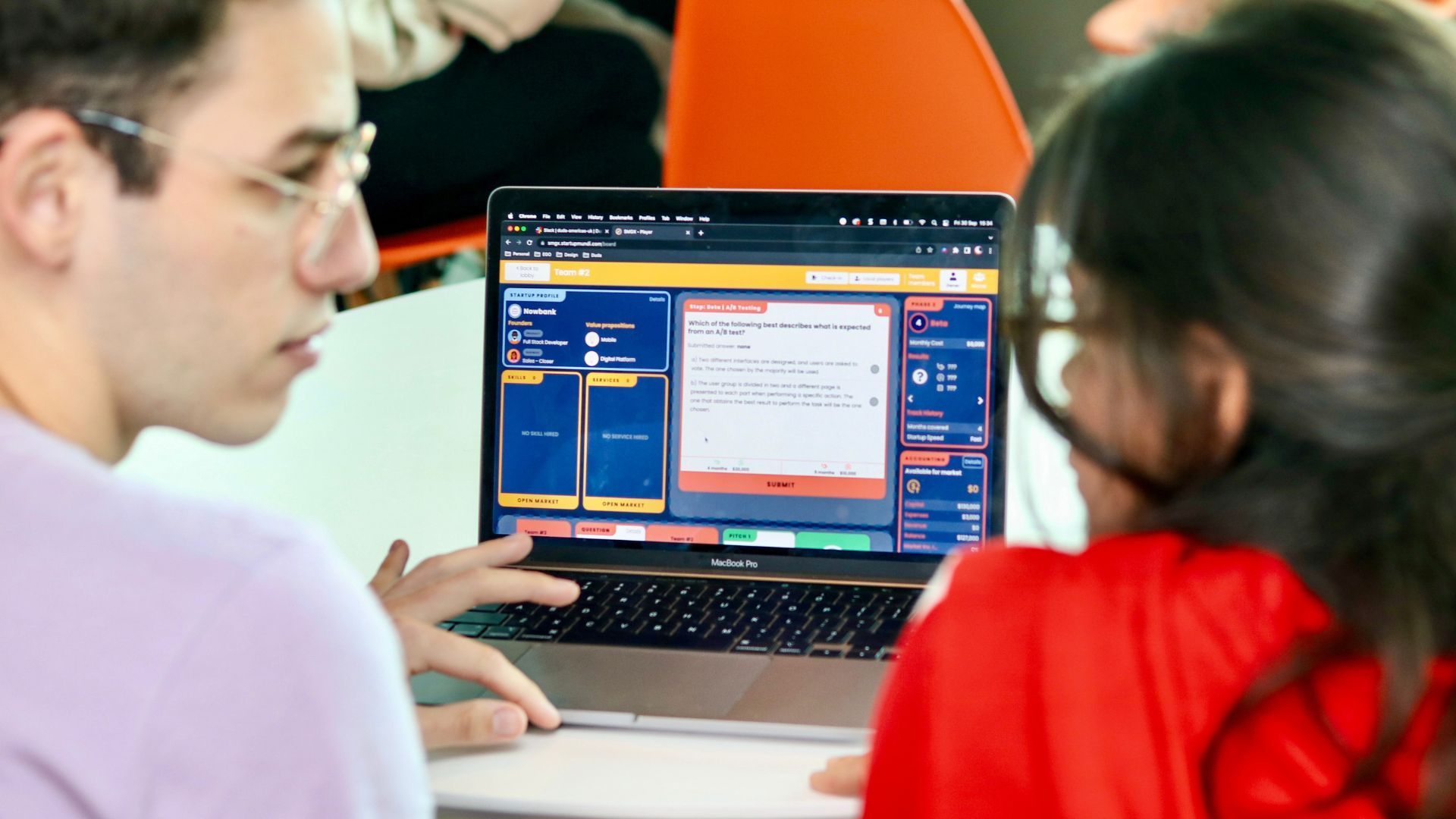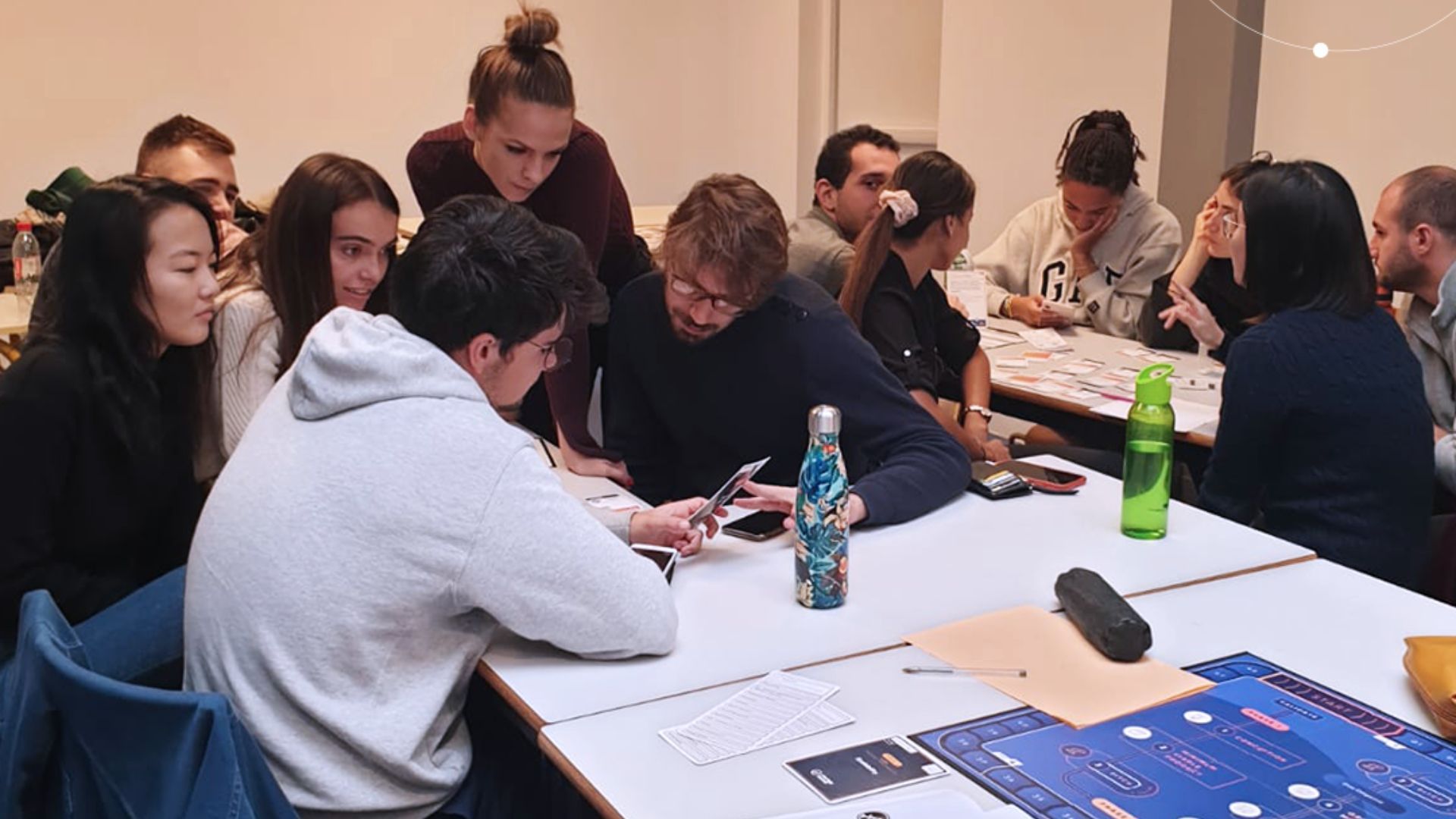How to teach entrepreneurship in school: everything you need to know to include entrepreneurial education in the curriculum
The school year is running fast and the agenda for entrepreneurial education is still on paper? Discover the ideal program to develop an entrepreneurial culture among your students.
At its core, entrepreneurship consists of the processes of developing, organizing and managing profitable businesses, even in the face of financial risk.
Far beyond the desire to be their own boss, entrepreneurs often seek an alternative to unemployment, create opportunities, as well as new solutions and answers to old problems in their context.
According to the 2021/2022 Global Entrepreneurship Report , entrepreneurship is considered a solution, especially in the post-pandemic era, because new businesses bring new ideas, technologies and products to society that accelerate change , create jobs and important social benefits. On the other hand, digitization and new technologies increasingly transform the labor market, which makes it necessary to create policies that help the population to keep up with this pace of constant change.
In view of this, the Organization for Economic Cooperation and Development (OECD) points out the importance of including cross-cutting themes such as innovation, entrepreneurship and leadership in the school curriculum from basic education, with the aim of preparing and training teachers, children and young people for the rapid transitions on the world stage.
But how to start an entrepreneurship program at your school?
With that in mind, we have brought this mini guide to entrepreneurship at school and everything you need to know to start an entrepreneurship program with your students right now.
- Importance of entrepreneurial education in schools.
- 3 methodologies for teaching entrepreneurship in schools.
- Bonus: Learn how to include the entrepreneurial education methodology in the curriculum.

The importance of entrepreneurial education in schools
A survey carried out by Junior Achievement USA with a thousand teenagers between 13 and 17 years old, shows that 60% of the participants prefer to start their own business than to have a traditional job, as well as, almost 37% claim to be interested in programs that focus on entrepreneurial education during the academic period.
There are countless benefits of entrepreneurial education in schools and the classroom is the best environment for this, since it has a learning structure and the support of teachers, as well as encouraging teamwork, communication, proactivity and autonomy.
In addition, students can acquire knowledge, experiences and attitudes that guide them to accomplish goals, turn ideas into businesses, thrive in their professional future and even contribute to their community.
Benefits of entrepreneurship in schools
- Problem solving: a common methodology for problem solving was devised by mathematician George Pólya , who divides the process into four steps: understanding the problem, building a resolution strategy, executing the strategy, and reviewing the solution.
- Resilience: in addition to making it easier to identify problems and solutions, entrepreneurial education contributes to faster decision-making and better emotional control.
- Creativity: Creativity goes hand in hand with problem solving, especially if we consider the need for ideas to create new solutions, with the aim of moving forward, learning and refining results.
- Critical thinking: teaches different points of view for the same situation, together with the analysis of facts and measurement of strengths or weaknesses of something, contributing to a more careful look before decision-making and less need for external opinions or approval.
- It's already clear that the skills needed to undertake are actually for life, isn't it?
- By learning entrepreneurship, students become able to face day-to-day challenges and survive in any environment and at any time, especially in phases as full of changes as teenagers.

3 methodologies for teaching entrepreneurship in schools
Unlike traditional teaching, entrepreneurial education must be understood with active methodologies capable of empowering students through sharing content and knowledge in practice.
Within this, the Unesco study “ Learning Counts ”, explains how constructivist models of development and learning apply an approach capable of measuring results in training, in order to emphasize the importance of active learning and continuous feedback. Thus, the teaching process becomes “subjective, informal, immediate and intuitive, as it interacts with learning as it occurs, monitoring student behavior, school performance and responsiveness to instruction”.
Thus, edutainment emerges, a concept that unites leisure and education to improve engagement and enhance the capture of knowledge.
Discover the 3 best methodologies to teach entrepreneurship education to teenagers
- Flipped Learning: this methodology encourages greater student participation and places the teacher in the role of facilitator and learning tutor.
- The teacher must propose certain content and share the respective materials so that his class can study outside the classroom.
- Afterwards, students must put what they have studied into practice, through questions and debates.
- Generally, flipped learning takes place through platforms, which facilitate remote communication and make the learning environment more dynamic.
- Design Thinking: with the aim of solving a problem, this method is divided into four stages:
- Immersion: the analysis is performed on the entire context in which the problem is inserted. SWOT Analysis is the most recommended, as it is a tool to map opportunities, threats, weaknesses and strengths. Feedback is also part of this step, with the aim of optimizing student performance.
- Ideation: with the diagnosis of improvement needs, the time comes to search for relevant ideas and solutions to solve the problem in question. The use of data is fundamental to optimize the effectiveness of the process, as well as teamwork and co-creation techniques, such as brainstorming, optimize and motivate participation.
- Prototyping: with the ideas gathered, it's time to test the ones with the greatest chance of success. The prototype is the beta version of the solution, which serves as a way to observe the experience of the proposal, needs for refinements and adjustments until its final version. The prototype can also happen through simulations of the desired solution.
- Ideation: it is time to take the plans off paper and launch the solution, involving multidisciplinary themes, such as communication and market knowledge.
- Game Based Learning:
learning is enhanced through the challenges presented during a game, with the formation of teams, it becomes a great tool to favor team spirit, socialization, resilience and motivation, which happens through the desire to win the competition.
Bonus: Learn to include entrepreneurial education methodologies in the curriculum
Including entrepreneurial education in the school curriculum may seem like a challenge. After all, it is necessary to review the entire school calendar, disciplines, schedules, in addition to the investment of time and resources available to find the ideal methodology for your students.
Thinking about it, the Startup Mundi Game brings together all the methodologies mentioned above in a board game capable of carrying out all entrepreneurial education, in physical, digital or hybrid formats.
In just a few hours, your students will enter the universe of innovation and entrepreneurship, in a realistic simulation of the entire journey of a solution, from idea to scalability. An exciting experience that enables entrepreneurial culture in practice.





